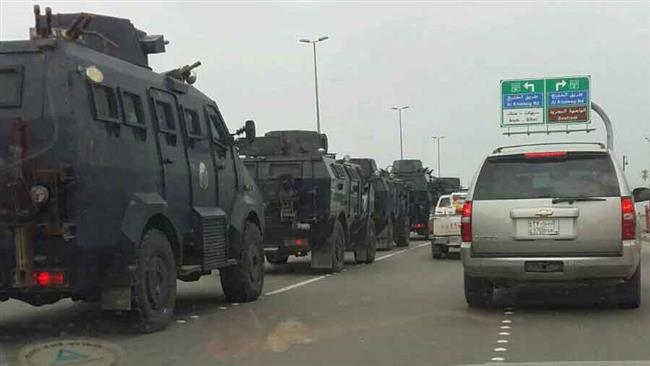Iran: Saudis Face ‘Divine Revenge’ For Executing al-Nimr
Saudi Arabia cut diplomatic ties with Iran on Sunday over attacks on its embassy facilities in Iran by people protesting the execution of prominent Shiite Muslim cleric Nemer al-Nemer, the kingdom’s foreign minister said. Embassy staff was not present during the fire attack.
The GCC also reaffirms its support for the decisions taken by the Kingdom to combat terrorism in all its manifestations and pursuing and trying those who carry out terrorist acts, arouse sedition and turmoil.
In India, hundreds of Shias demonstrated in the Muslim-majority northern province of Kashmir, where one protest organiser said the charges against Nimr were “baseless”.
Forty people were arrested after protesters stormed the Saudi embassy in Tehran hurling rocks and setting fire to the building before being driven back by police.
An official source at the Foreign Ministry was quoted by the Kuwaiti News Agency as saying that Iranian authorities should shoulder responsibility for protecting the embassy and ensuring the safety of its staff.
Along with the 56-year-old were Shiite activists and Sunnis accused of involvement in Al-Qaida killings.
It criticised Iran’s “flagrant interferences in regional countries, including Iraq, Yemen, and Lebanon, as well as Syria where it has directly intervened through its Revolutionary Guard and Shiite militia” causing the death of tens of thousands of Syrians.
The Yemeni president Abdrabu Mansur Hadi voiced support yesterday for the Saudi judicial process in the execution of the 47 convicted terrorists.
Relations between Sunni-ruled Saudi Arabia and Shiite-ruled Iran have been strained for decades, with Riyadh frequently accusing Tehran of interfering in Arab affairs.
Executions have soared in Saudi Arabia since King Salman ascended the throne a year ago with 153 people put to death in 2015, almost twice as many as in 2014, for crimes ranging from murder to drug trafficking, armed robbery, rape and apostasy.
By Sunday afternoon crowds of protesters had gathered outside Saudi embassies in Beirut and Tehran, and protests were expected in al-Nimr’s hometown of al-Qatif in eastern Saudi Arabia. A Saudi diplomat, Mousa’ad al-Ghamdi, died in Tehran of wounds sustained when he fell out of an embassy window and Riyadh accused Tehran of delaying his transfer to a hospital in Saudi Arabia.
Shiites around the world expressed outrage, potentially complicating a surge of US diplomacy aimed at bringing peace to the region, according to Toby Matthiesen, an expert on Saudi Arabia at the University of Oxford.
“The diplomatic police are responsible for confronting any aggression against the diplomatic sites of Saudi Arabia and will act according to its duties to maintain public order and restore security to such places”, Foreign Ministry spokesman Hossein Jaber Ansari said.
Iran’s Supreme Leader Ayatollah Ali Khamenei added his voice to a chorus of condemnation by tweeting a tribute to Nimr.
The supreme leader also posted to his website a critical illustration that compared a Saudi Arabian executioner with an ISIS Jihadi preparing to behead a victim.
Saudi Arabia’s execution of Sheikh Nimr has drawn a series of protests across the Persian Gulf region over the past two days.
Nimr was a driving force behind anti-government protests in Saudi Arabia in 2011.








